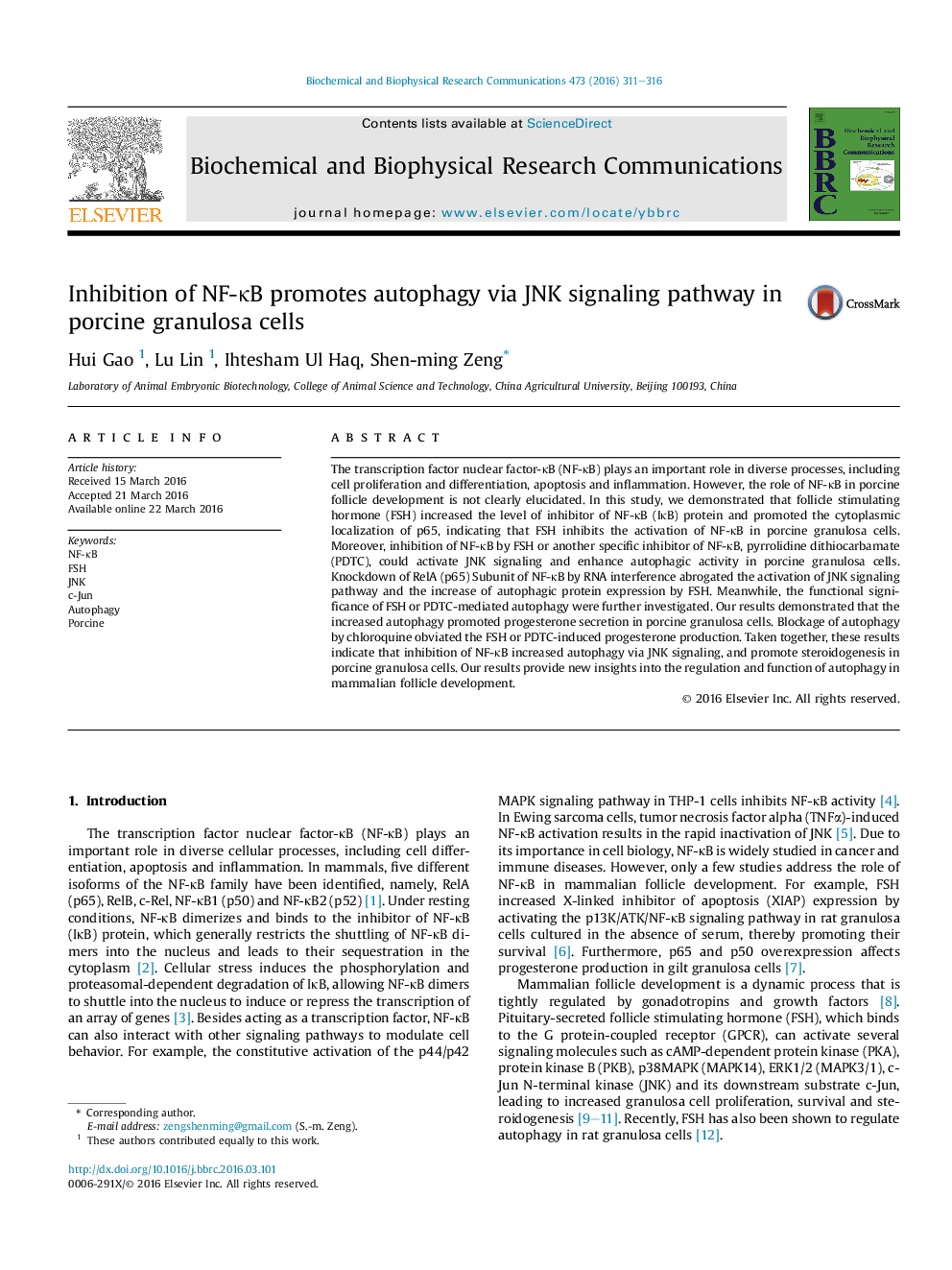| Article ID | Journal | Published Year | Pages | File Type |
|---|---|---|---|---|
| 1927895 | Biochemical and Biophysical Research Communications | 2016 | 6 Pages |
•FSH inhibits the activation of NF-κB in porcine primary granulosa cells.•Inhibition of NF-κB by FSH promotes autophagy via JNK signaling in granulosa cells.•Increased autophagy contributes to progesterone production in granulosa cells.•This is the first report against beclin1 regulation in porcine granulosa cells.
The transcription factor nuclear factor-κB (NF-κB) plays an important role in diverse processes, including cell proliferation and differentiation, apoptosis and inflammation. However, the role of NF-κB in porcine follicle development is not clearly elucidated. In this study, we demonstrated that follicle stimulating hormone (FSH) increased the level of inhibitor of NF-κB (IκB) protein and promoted the cytoplasmic localization of p65, indicating that FSH inhibits the activation of NF-κB in porcine granulosa cells. Moreover, inhibition of NF-κB by FSH or another specific inhibitor of NF-κB, pyrrolidine dithiocarbamate (PDTC), could activate JNK signaling and enhance autophagic activity in porcine granulosa cells. Knockdown of RelA (p65) Subunit of NF-κB by RNA interference abrogated the activation of JNK signaling pathway and the increase of autophagic protein expression by FSH. Meanwhile, the functional significance of FSH or PDTC-mediated autophagy were further investigated. Our results demonstrated that the increased autophagy promoted progesterone secretion in porcine granulosa cells. Blockage of autophagy by chloroquine obviated the FSH or PDTC-induced progesterone production. Taken together, these results indicate that inhibition of NF-κB increased autophagy via JNK signaling, and promote steroidogenesis in porcine granulosa cells. Our results provide new insights into the regulation and function of autophagy in mammalian follicle development.
